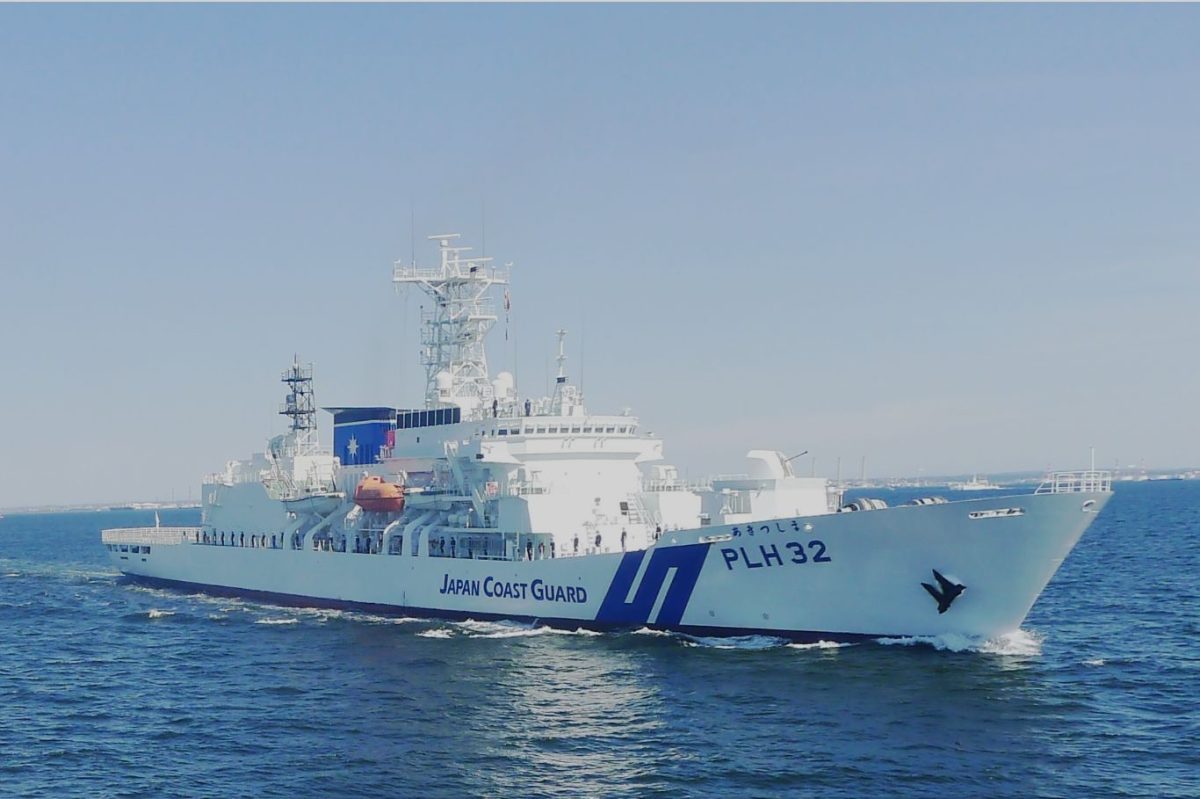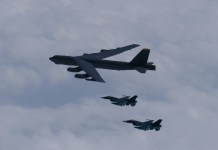In a move likely to make China furious, Quad partners are slated to conduct the first-ever joint Coast Guard drills in January next year.
Citing an anonymous defense source in the Japanese Ministry of Foreign Affairs, Nikkei Asia reported earlier this week that the joint Coast Guard drills are expected to take place at the Port of Yokohama in Tokyo Bay from January 7 to January 11 to boost collaboration among partners amid rising security threats in the Indo-Pacific.
However, another report published on December 20, which cited a press release from the Japan Coast Guard, said that only the Coast Guards of the United States, Japan, and India will participate.
In addition to the drills, there will be an annual summit between Japan and India’s coast guards in Tokyo on January 10, with Paramesh Sivamani, the Director General of the Indian Coast Guard, visiting Yokohama with a large Indian patrol vessel.
According to reports, the Japan Coast Guard’s National Strike Team and Indian Coast Guard ships, which are scheduled to visit Yokohama for the first time in six years, will be the main participants in the exercise. They will be joined by the US Coast Guard’s National Strike Force, a specialist organization that trains others for disaster response.
Further, a spokesperson of the Japan Coast Guard reportedly told Stars and Stripes, a US Military news organization, that the exercise would emphasize collaboration and maritime environmental protection, including safeguards against hazardous materials.
The reports of upcoming drills come months after the Quad partners vowed in September to intensify the Indo-Pacific Partnership for Maritime Domain Awareness (IPMDA) and launch joint coast guard patrols in 2025.
China fiercely criticized the move and called it an attempt to “hit the edge ball.” A report in the China Military stated: “Previously, the US Coast Guard has already operated in the waters of several Pacific island states and boarded and inspected ships on their behalf. Now it is bringing on its three partners for three reasons: to make what it’s doing strategically and diplomatically more justifiable through the increase in number, to shore up its deficiencies, and to get the Quad mechanism into action.”
If the Australian Coast Guard does not participate, the upcoming Coast Guard drills do not qualify as Quad drills. However, they are likely to infuriate China, which has accused the US of attempting to form an Asian NATO with its allies to contain China.

The Quad is increasingly seen as a strategic check on China’s expanding economic and military clout in the Indo-Pacific region. The Biden administration has been putting a lot of effort into strengthening and formalizing the Quad, with an emphasis on strengthening member countries’ collaboration.
In October this year, Quad partners participated in the ten-day Malabar naval military drills hosted by India in the Bay of Bengal. The drills included surface, sub-surface, anti-submarine warfare training, air defense, and information operations.
The US also regularly holds joint military drills in the Indo-Pacific region with its regional allies like Japan, South Korea, Australia, and the Philippines amid stiff opposition from China. However, the latest drills will likely make China more furious as it will be Quad’s first joint Coast Guard exercise.
Coast Guard Drills To Counter China?
The joint Coast Guard drills between the US, Japan, and India are happening at a time when China’s Coast Guard (CCG) has been accused of intimidating and attacking the Philippines’ Coast Guard vessels in disputed territories in the South China Sea. Several videos of these aggressive engagements have surfaced online recently.
The CCG has also been accorded a bigger role in the Taiwan Strait by China. During the “Joint Sword-2024B” military drills, the CCG was deployed for the first time to encircle Taiwan and simulate a blockade in the event of an invasion of the self-ruled island state.
Dongkeun Lee, a PhD candidate at the Strategic and Defence Studies Centre at Australian National University, stated earlier that the current power dynamics of the Indo-Pacific region have led to an expansion of the role of the Coast Guard.
“Since both China and the US [along with its partners] recognize the risks of escalating conflicts to the level of direct military clashes, these countries are increasingly adopting grey-zone tactics to either uphold or enforce the rules and norms they support,” Lee said.
Grey Zone tactics are moves that fall short of direct military confrontation. They include using non-military assets like coastguards to challenge adversaries or assert influence without resorting to direct military conflict.
In a previous interaction, Shashank S. Patel, a geopolitical analyst, told the EurAsian Times, “The implementation of joint patrolling for the last two years was in ICU, waiting for necessary oxygen to revive on high seas & territorial waters. China gave that oxygen to QUAD members through its recent yet repeated marine aggression over EEZs of Philippines, Japan, and Taiwan.”
“QUAD’s joint patrolling plans will suffocate Chinese political, military, and economic authoritarian interests in the Indo-Pacific region (IPR),” he noted.
Many experts have noted that the Quad allies need to step up Coast Guard drills and cooperation to combat an aggressive China in the region.
Manohar Parrikar Institute of Defense and Analyses, an India-based think tank, said in an analysis: “Through Coast Guard collaboration, the Quad has the opportunity to address some of the complex maritime security issues of the Indo-Pacific. The identification of HRA (High-Risk Areas), the establishment of common SOPs, and the pooling of resources can play a decisive role in countering various problems like piracy, terrorism, and maritime crimes.”
It seems after much deliberation, Quad nations are finally planning to do what they should be doing, i.e., countering China at sea to challenge its hegemony.
- Contact the author at sakshi.tiwari9555 (at) gmail.com
- Follow EurAsian Times on Google News




